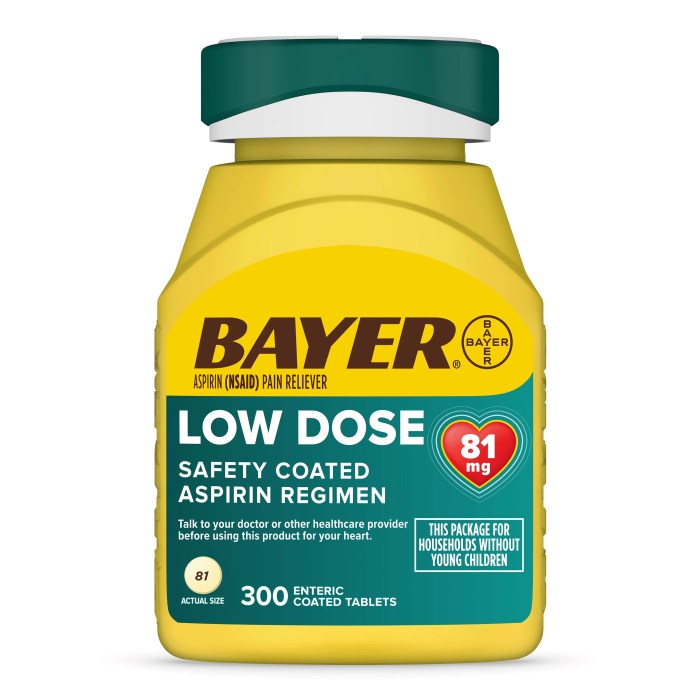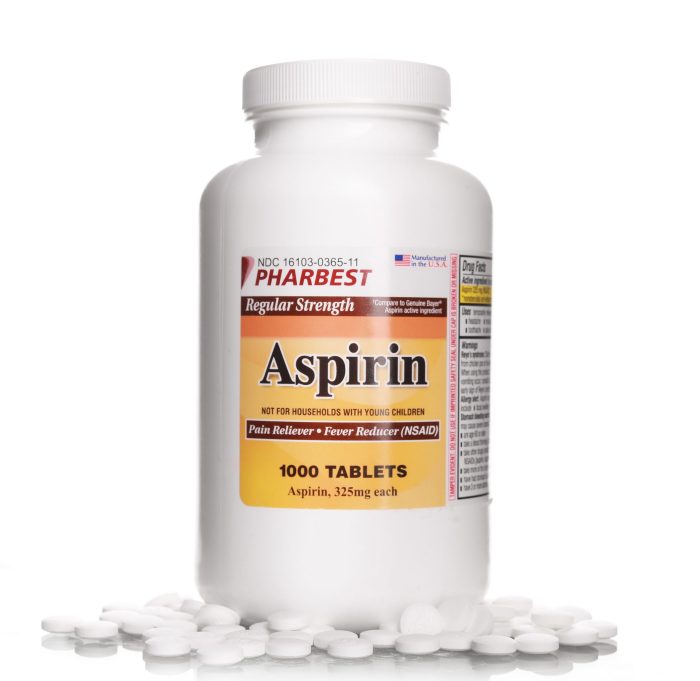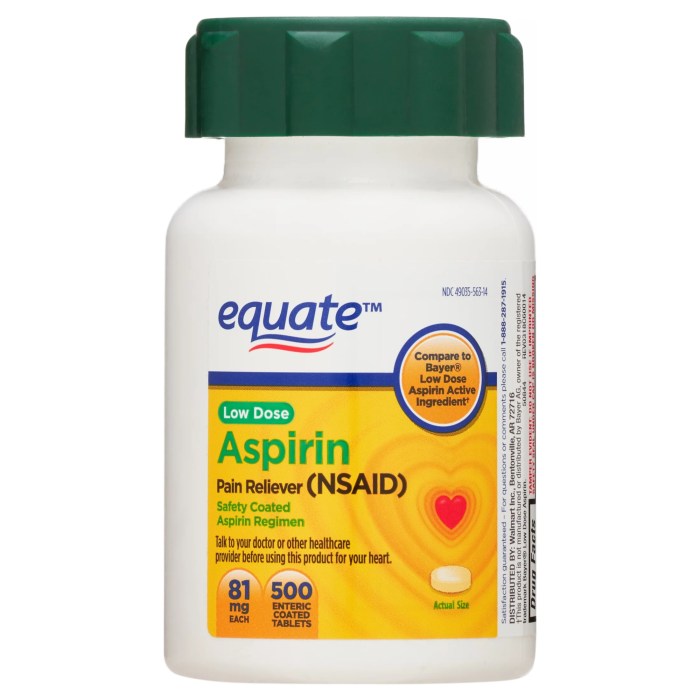A nurse is administering aspirin 81 mg to a patient as part of their treatment plan. Aspirin, a commonly used medication, plays a crucial role in managing various health conditions. Understanding the indications, precautions, and proper administration techniques for aspirin 81 mg is essential for nurses to ensure safe and effective patient care.
This comprehensive guide will delve into the mechanism of action, indications, contraindications, and precautions associated with aspirin use. It will also provide detailed instructions on administering aspirin 81 mg, including dosage, frequency, and route of administration. Additionally, the guide will highlight essential nursing considerations, such as patient assessments, monitoring parameters, and patient education.
Aspirin Overview: A Nurse Is Administering Aspirin 81 Mg

Aspirin, also known as acetylsalicylic acid (ASA), is a nonsteroidal anti-inflammatory drug (NSAID) that is widely used for its analgesic, antipyretic, and anti-inflammatory properties.
Mechanism of Action
Aspirin exerts its therapeutic effects by irreversibly inhibiting the enzyme cyclooxygenase (COX), which is responsible for the synthesis of prostaglandins. Prostaglandins are involved in various physiological processes, including pain, inflammation, and fever. By inhibiting COX, aspirin reduces the production of prostaglandins, thereby reducing pain, inflammation, and fever.
Indications for Aspirin Use
Aspirin is indicated for the relief of mild to moderate pain, including headaches, muscle aches, and menstrual cramps. It is also used to reduce fever and inflammation in conditions such as the common cold, influenza, and arthritis. Aspirin has antiplatelet effects and is used to prevent blood clots in patients with cardiovascular disease.
Contraindications and Precautions for Aspirin Use
Aspirin is contraindicated in patients with a history of hypersensitivity to aspirin or other NSAIDs. It should also be used with caution in patients with active peptic ulcer disease, asthma, and bleeding disorders. Aspirin should not be given to children under the age of 12 years due to the risk of Reye’s syndrome.
Aspirin Administration

Route of Administration
Aspirin 81 mg is administered orally.
Dosage and Frequency
The usual dosage of aspirin 81 mg for adults and children over 12 years of age is one to two tablets every four to six hours as needed for pain or fever. The maximum daily dose of aspirin should not exceed 4 grams.
How to Administer Aspirin 81 mg, A nurse is administering aspirin 81 mg
Aspirin 81 mg tablets should be swallowed whole with a full glass of water. Do not crush or chew the tablets. Aspirin should be taken with food or milk to reduce the risk of stomach upset.
Nursing Considerations

Nursing Assessments
Before administering aspirin 81 mg, the nurse should assess the patient’s history for any allergies to aspirin or other NSAIDs. The nurse should also assess the patient’s vital signs, including temperature, pulse, and blood pressure.
Monitoring Parameters
During aspirin 81 mg administration, the nurse should monitor the patient for signs of adverse effects, such as gastrointestinal upset, bleeding, and allergic reactions. The nurse should also monitor the patient’s pain level and response to therapy.
Patient Education
The nurse should educate patients on the proper use of aspirin 81 mg, including the dosage, frequency, and route of administration. The nurse should also inform patients about the potential adverse effects of aspirin and the importance of seeking medical attention if any adverse effects occur.
FAQ Summary
What is the mechanism of action of aspirin?
Aspirin inhibits the enzyme cyclooxygenase (COX), which reduces the production of prostaglandins, thromboxanes, and prostacyclins.
What are the common adverse effects of aspirin 81 mg?
Common adverse effects include gastrointestinal upset, nausea, vomiting, and tinnitus.
What are the contraindications for aspirin use?
Aspirin is contraindicated in patients with a history of aspirin-induced asthma, urticaria, or angioedema, active peptic ulcer disease, and bleeding disorders.
